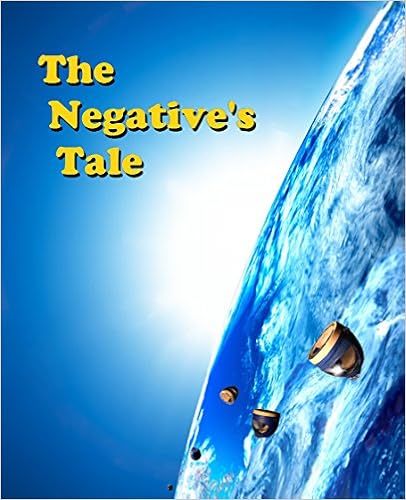Allon Wu lives sometime
in our distant future – far enough for people, having aged 300 with
the help of their non-sentient clones, to have become bored with life
– plus enough time for us to have developed that technology.
Alternatively, one could figure in the time it'll take us to get
around the barriers to faster-than-light travel, and then populate
the farthest reaches of our galaxy.
The latter technology is one in which our protagonist plays an
essential part, through his psychic ability. But first, let's start
with how faster-than-light travel is possible to begin with: it's
those factors that also make time-travel impossible, that are
combined so as to complement each other, that make faster-than-light
travel possible. When it's done right, computers can then be used to
calculate the variables that will relocate the ship to anywhere in
the universe – within certain limits. However, things can still go
horribly wrong through various distortions in the cosmos, and that's
where a navigators with psychic abilities comes in. Only they can
detect those distortions so as to make the necessary mid-course
adjustments. So, one or two such “navigators” are required for
every interstellar flight.
Allon
Wu's particular ability is rare. He's a dowser with negative
orientation. As a “negative”, he's able to enter the mind of any
psychic of “positive” orientation, and make use of their ability.
His use of his ability as a dowser (finding things, or hitting on the
right course of action) is also affected by his negative orientation.
The right course of action is usually the one his normal intuition
tells him is the most unlikely, so he has to learn act
counter-intuitively – almost in a New Testament sort of way:
becoming small in order to achieve greatness, losing your life to
gain it, etc.
Leib's
fictional science is brilliant. Not being a nuclear physicist myself,
I don't know where the hard science ends and his ingenuity begins.
Not having read every sci fi novel ever written, I don't know if
anyone else has thought of this sort of work-around to
faster-than-light travel – with the possible exception of myself (I
used something I called “logical relocation” in one of my novels,
but I didn't explain it in nearly so much detail – and I didn't use
psychics).
The
technical details are explained to 10-year-old Allon Wu by his aged
instructor, Professor Billgore at the beginning of one of the two
story-lines in this narrative. That's the other unique feature of
Leib's novel; he's actually telling two stories.
The
main story is the one in which the adult Allon Wu has been
commissioned by his estranged wife, a Vice Admiral, to solve a
suspected murder on board a space station cum city. The background
story is told, initially through flash-backs, and then continued in
the form of a story he tells his colleagues during pauses in their
action – thus the “Negative's Tale”. The “tale” actually
takes longer than the main story. It begins with a workplace accident
that changed the direction of his career, then further back to the
age of ten, when he began his education as a “second navigator”,
then his romance with the Vice Admiral that began in the wake of his
career change following the accident. The story he tells his two
colleagues is of a trip to distant star system in pursuit of a
murderous religious fanatic who has almost killed his admiral/wife,
and is on his way to systematically kill more people. On this trip,
he interacts with non-human extraterrestrials, which, interestingly,
one of his old professors claimed didn't exist. Both stories come to
a great finish.
Personally,
I loved the innovative style of this book. I can see how some might
prefer a more standard approach, but I loved it. Although there may
have been a few non-standards glitches such as switching points of
view in mid scene, a few over-long descriptions and a little bit of
unnaturalness in some parts of the dialogue; the great story-telling
carried it for me, so I'm giving it a fiver.








No comments:
Post a Comment